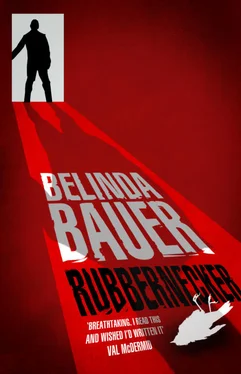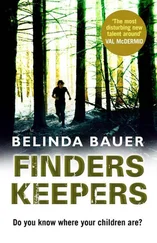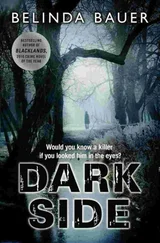Jarvis laughed. It was a strange sound in a strange place and from a strange-looking man. ‘Absolutely not. Our donors have generally died from age-related heart conditions or cancers, or complications like pneumonia. Every death is properly certified by an attending doctor. Even then, we can only accept donations if the body has not been too badly damaged by an illness or injury. We need them to be in reasonable shape so that students know what a standard body looks like. There’s no point training students on bodies with broken limbs or with severe internal degradations.
‘For the same reason we can’t accept autopsied bodies, so the donors will have been expected to die from their disease or injuries. Autopsies are always performed on murder victims.’
‘If you know they’ve been murdered,’ mused Williams.
‘True,’ nodded Jarvis and took another biscuit, so Williams did the same. He’d missed breakfast because of all this.
‘Would it be possible to see the paperwork relating to Number 19?’
‘Of course.’ Using a key that was poorly hidden under a saucer, Jarvis opened one of the two filing cabinets and withdrew a slim folder.
Emrys Williams studied the records. The first form was a donor application in the name of Samuel Galen.
‘This is dated almost ten years ago!’ he said.
‘Yes,’ said Jarvis. ‘People can make a donor application at any time. If they change their minds, they only have to let us know and we destroy the documentation.’
Williams ran his eye down the form. He noticed that Samuel Galen and he shared a birthday. Same day, same year. Emrys and Sam. He wondered whether Sam had celebrated his birthdays the same way he did – with a few pints down the Three Tuns and a phone call from his aged mother, who never forgot.
It gave him an uncomfortable sense of his own existence being on temporary loan, and he had to brush the idea aside to concentrate on the matter at hand.
The donation form was short and contained questions that left no room for sentiment.
I consent to my body parts being retained by the nominated establishment.
I consent to unidentifiable photographs of my body parts being taken and retained for training, education and research.
Burial/cremation
All the donor had to do was tick boxes. Mr Galen had ticked burial, then apparently changed his mind and gone for cremation.
In a different pen.
Williams pointed it out to Jarvis, who frowned.
‘I don’t know how I missed that. Any changes should be signed at the point of the change, or a new form must be filled in. They can’t just cross things out!’
Williams flicked to the back of the thin sheaf. Attached to the rear of the form was a largely blank page headed PERSONAL DECLARATION (OPTIONAL).
Samuel Galen had exercised the option.
My daughter, Alexandra, is an alcoholic. I am donating my body to help to train doctors who may one day find a solution to this heartbreaking disease.
Emrys Williams was caught off-guard. The declaration was an oddly moving thing to hold in his hands when just this morning he had found the man’s head in a fridge, crammed between the best and the worst of student cuisine.
‘Most applicants attach a personal statement,’ said Jarvis. ‘ Why they choose to donate is important to them.’
Williams went through the rest of the file more quickly. There were next-of-kin consent forms, signed by a Mrs Jackie Galen one day after the date of death, transfer documentation from the local hospital to the university, undertakers’ permissions, and a copy of the death certificate, which gave the cause of death as ‘heart failure due to complications of coma’.
‘Another HobNob?’ said Jarvis, shaking the packet at him.
Williams didn’t hear him.
The death certificate had been signed by a Dr D. Spicer.
JUST BEFORE THREE p.m., Emrys Williams opened the double doors and said, ‘Thank you for coming back down so quickly, Dr Spicer.’
‘No problem.’
Williams stood aside for Dr Spicer to pass him, then lingered for a moment to listen to the national anthem swell out of the stadium and float across the city – a sound that never failed to take hold of his heart and give it a patriotic squeeze. The city would be loud tonight and filled with Welshmen dressed as daffodils with their arms around the shoulders of Frenchmen in berets, all celebrating the result in the common language of not being English.
Williams sighed and closed the door.
They talked while they walked. ‘There are just a few things we hope you can help us with. About Patrick Fort, mostly.’
‘Of course,’ said Spicer. ‘Is he OK?’
‘Oh yes.’
‘Good,’ said Spicer. ‘Because he’s quite vulnerable, I think.’
‘Really?’
‘Yes. You know he was at the university on a disability quota?’
‘I didn’t know that.’
‘Yes. He’s autistic.’
‘I thought he had Asperger’s?’
‘Well, it’s all on the spectrum. He can be quite detached from reality at times. Paranoid. Confused. That kind of thing.’
‘Sounds like my ex-wife.’
Spicer laughed.
Williams opened the door to Interview Room Three and ushered him inside.
‘Dr Spicer, this is DCI White, who is in charge of the case,’ he said. ‘And you already know Mr Galen.’
The head was on the table in a clear plastic evidence bag.
There was a long silence.
Spicer finally looked at White and said, ‘Hi.’
‘Thanks for coming, Dr Spicer.’
‘No problem.’
‘We’ll try not to keep you long,’ said White. ‘DS Williams is a long way past the end of his shift, and I’m supposed to be at the match.’ He smiled ruefully. Spicer only nodded.
They all sat down, the head between them. Williams and White never glanced at it; Spicer could look at little else. The head was a magnet for his eyes, dragging his gaze back to it whenever it strayed. A fold in the plastic touched the remaining eyeball, making it stand out as if peering directly at Spicer through a peephole to another dimension.
DCI White opened a folder. ‘Patrick Fort has told us some story, Dr Spicer.’
‘I’m not surprised. World of his own. He needs help really.’
‘I agree. But maybe together we can separate fact from fiction.’
‘Yes.’
‘Good,’ said White. ‘Patrick says that you tried to kill him last night.’
‘Does he? That’s ridiculous.’
DCI White flicked through the folder in a show of not knowing what it contained. ‘He says you knocked him off his bicycle on Dumballs Road and then tried to run him down in a car park.’
‘That’s not true.’
‘But he was injured.’
‘How would I know?’ said Spicer. ‘Look, Patrick came to a party at my flat last night. He got very drunk. He left early. If he fell off his bike or got knocked off it, I wouldn’t be surprised.’
DCI White nodded and flicked through the paperwork again. ‘This morning he had a blood alcohol level of zero.’
‘I’m surprised,’ said Spicer, and folded his arms across his chest.
‘Did you leave the party at all?’
‘Yes,’ said Spicer. ‘I went out to get more beer.’
‘Bad planning?’ said White.
‘Students. Free booze. You know?’
‘But not Patrick Fort.’
‘Not if you say so.’ Spicer shrugged. ‘He appeared a little irrational. I assumed he was drunk.’
‘What time did you go out?’
‘I’m not sure.’
‘Guess.’
‘About eleven.’
‘And what time did you get back?’
‘About half past, I should think.’
‘Get a receipt for the beer?’
‘I’d have to check.’
Читать дальше












